As published in Religion Unplugged
Pledging Your Life to Allah, the Ahmadi Way
Neha Mehrotra | nm3148@columbia.edu
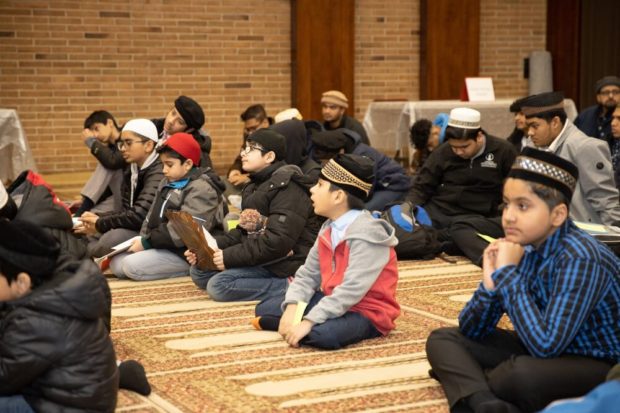
NEW YORK— Suman Amara Ahmad has always known that her future was not hers to chart. But she doesn’t mind. She has made her peace with it. That, she says, is the fate of being a waqf-e-nau. You have no idea where you will land up. “I could be sent anywhere in the world,” she says. “It’s all up to the Khalifa.”
On a recent Saturday morning before the coronavirus lockdown, Amara was one among approximately 50 waqf-e-nau children who gathered at Bait-uz-Zafar, an Ahmadi mosque in Queens, New York. In Arabic, “waqf” means to pledge and “nau” means new.
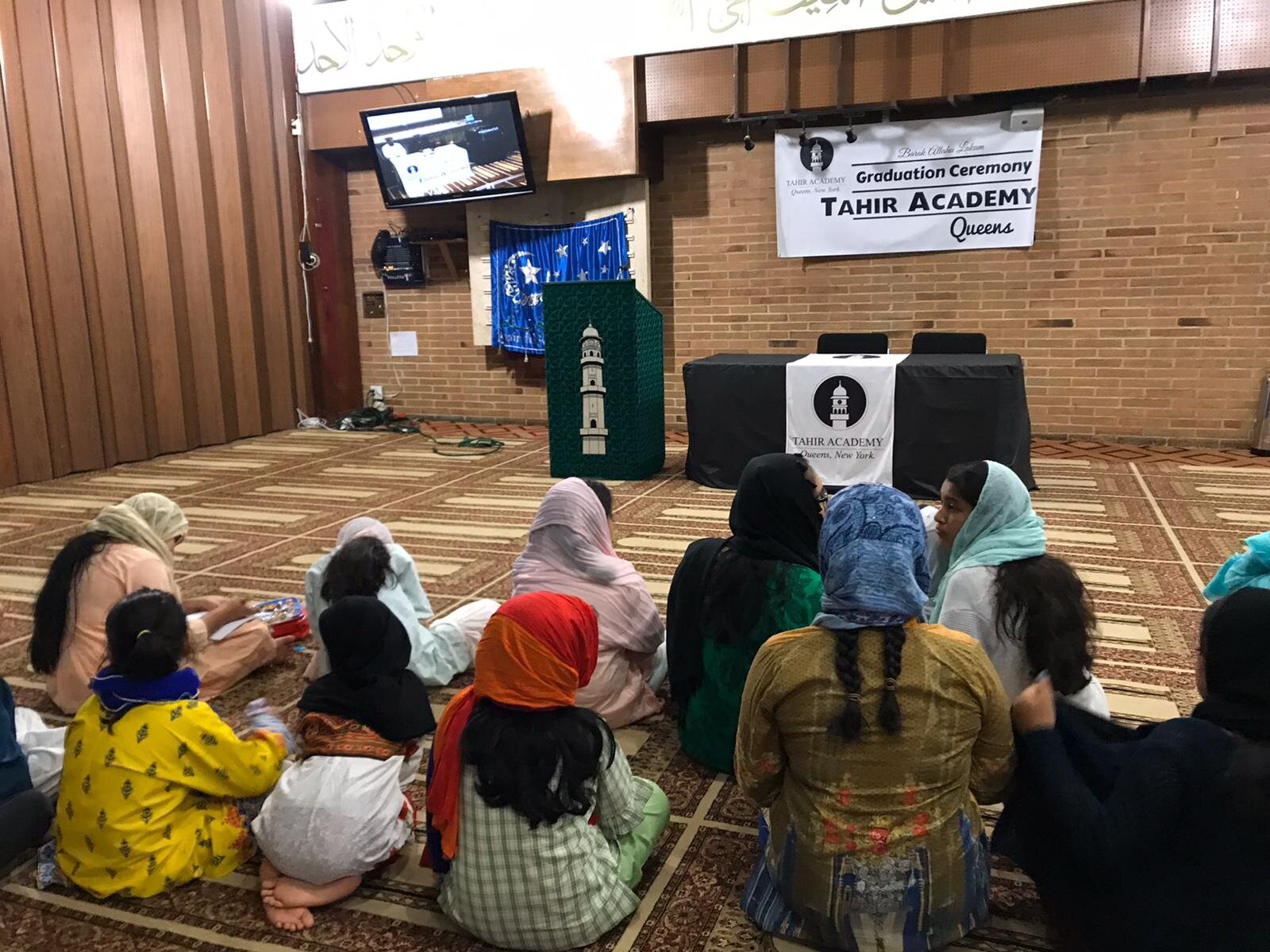
The waqf-e-nau journey begins in the womb, when pregnant mothers offer their unborn child to Allah. This is not a metaphorical pledge but an actual one. When parents decide on rearing their child as a waqf-e-nau, they write a letter to their Khalifa (supreme leader) surrendering their child to the supreme leader, to assign them a societal role as he sees fit. This waqf-e-nau ijtema (gathering) was a biannual test of all the children pledged by this ritual, to measure their progress and reward excellence.
At 22 years old, Amara is too old to take part in the test, which is meant for children ages 8 to 15. But having gone through the same process when she was younger, she is familiar with its ins and outs and is here to help. The children themselves look excessively washed and combed and a little nervous. They have reason to be. At today’s ijtema, they will be tested on six standards: 1) Religious knowledge and etiquette 2) Hadith, sayings of the Prophet Muhammad 3) Quran 4) Salaat, the liturgy of prayer to follow five times a day 5) Nazm, a genre of Urdu poetry and 6) Prayer that is voluntary and not part of salaat. The pledges are marked for their performance in each category and, after a grand totaling, the highest scorers will be awarded prizes.
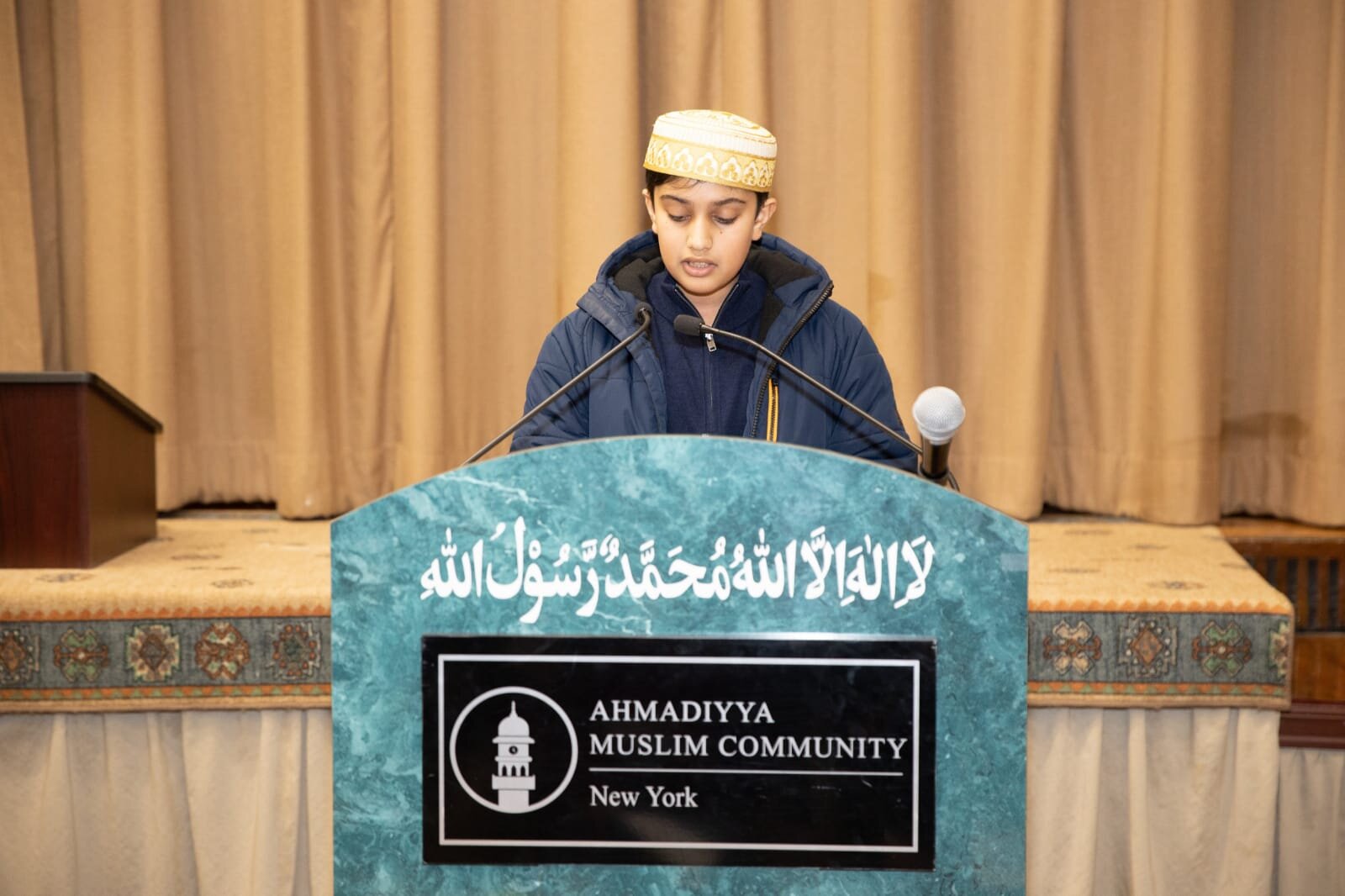
This practice is unique to a particular sect of Islam called the Ahmadiyyas. Though Sunnis and Shias are the two major sects of Islam, the religion has a number of offshoots, each with its own variations in belief and practice. Historically, Ahmadis have stood apart from mainstream Islam. While traditional Muslims believe that there is one God and Prophet Muhammad is the last prophet of God, Ahmadis believe Mirza Ghulam Ahmad (1835-1908), who founded the Ahmadi movement, was sent to renew the Prophet Muhammad’s message. Ahmadis do not propose a “return of the prophet” but rather consider Ghulam Ahmad to be the Messiah invoked in the Quran who is destined to come and renew the prophet’s message. The Ahmadiyya Muslim community teaches that God sent Ghulam Ahmad as a metaphorical second coming of Jesus Christ to end religious wars, condemn violence and restore morality, justice and peace.
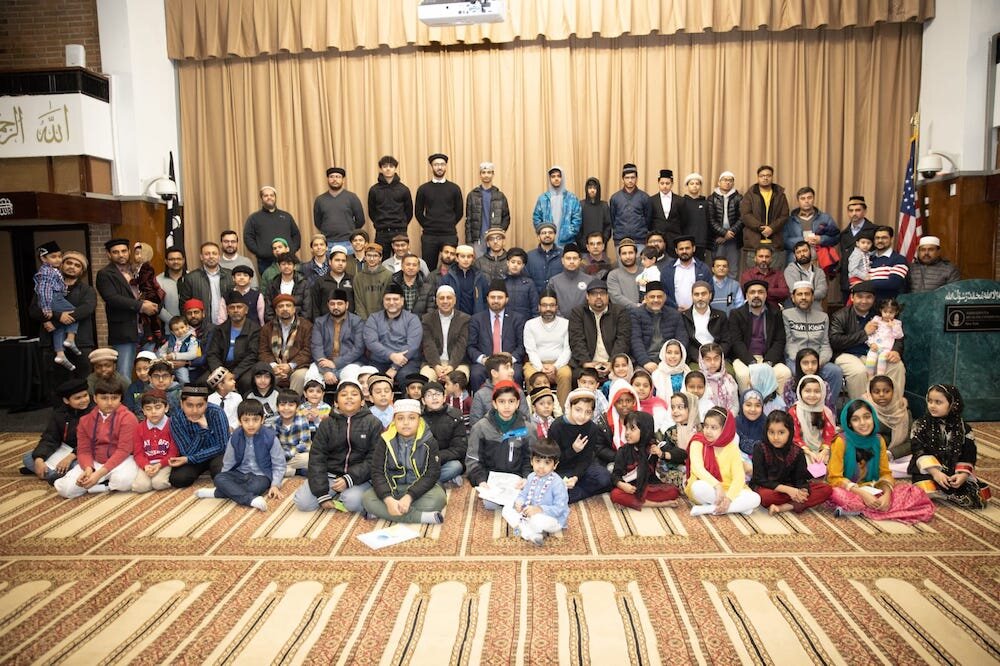
Due to this difference of perspective, a large section of Muslims consider Ahmadis heretics and refuse to acknowledge them as Muslim. In response, the Ahmadis have largely cut themselves off from mainstream Islam. Though Ahmadis engage in missionary work in the communities they are a part of, their main focus is on consolidating strong cross-continental networks within their own community. The waqf-e-nau is an extension of this.
“We think waqf-e-nau children are special because they are going above and beyond to fulfill the responsibilities of an Ahmadi Muslim,” says Farah Ahmad, a mother who has pledged all three of her children to be waqf-e-nau, all of whom are participating in the day’s test: two sons, ages 13 and 8, and a daughter age 9.
Since the initial pledge is made before the actual birth, the child has no say in the matter, at least until the age of 15. From birth till their 15th birthday, waqf-e-nau children, like Amara, are given a special education. Every weekend, when most children are kicking back after a week of school, the waqf-e-nau attend Saturday training at the masjid, learning the finer points of their religion. Once they turn 15, the children are asked to renew the pledge made by their parents.
At this point, they could potentially demur and decide against continuing to be a waqf-e-nau. “But that’s rare. Once parents have committed, most children see it all the way through,” says Ahmad. None of her three children have reached the age of 15 yet, but Ahmad is confident that all her children will renew their pledge when the time comes. The first renewal is followed by a second renewal at 18, and a third one at 21. In this ultimate pledge, the Khalifa meets with the child, and based on the child’s chosen profession, assigns him to that part of the world where he will be most useful to society. The child in turn has to obey and go where the Khalifa instructs him.
The murabbi of the Bait-uz-Zafar mosque, Mahmood Kauser, whose job involves providing religious training and proselytization, explained the reason for this seemingly strange practice:
“Giving up one’s life to God is freedom. Let me elaborate. If I wave a ball at a dog, he will go fetch it. His eyes are glued to the ball. Is this dog free? No. Similarly, if one is bound by the wants and desires of this world, one is hardly free. Waqf-e-nau are pledged and brought up with one goal: to be free of all worldly desires. Their sole purpose is to be beneficial to mankind.”
One mother claimed that she was asked to pledge her child in a dream. “When I was in college, I dreamt that I was in the OR and my mom and sister were standing around me,” she said. “As I was lying there, my baby was brought to me wrapped in red cloth. On the cloth, it said in clear letters ‘waqf-e-nau.’”
Another mother said that everything she has belongs to Allah and her own child is no exception. “A child is a gift from Allah and so absolutely belongs to Allah first.”
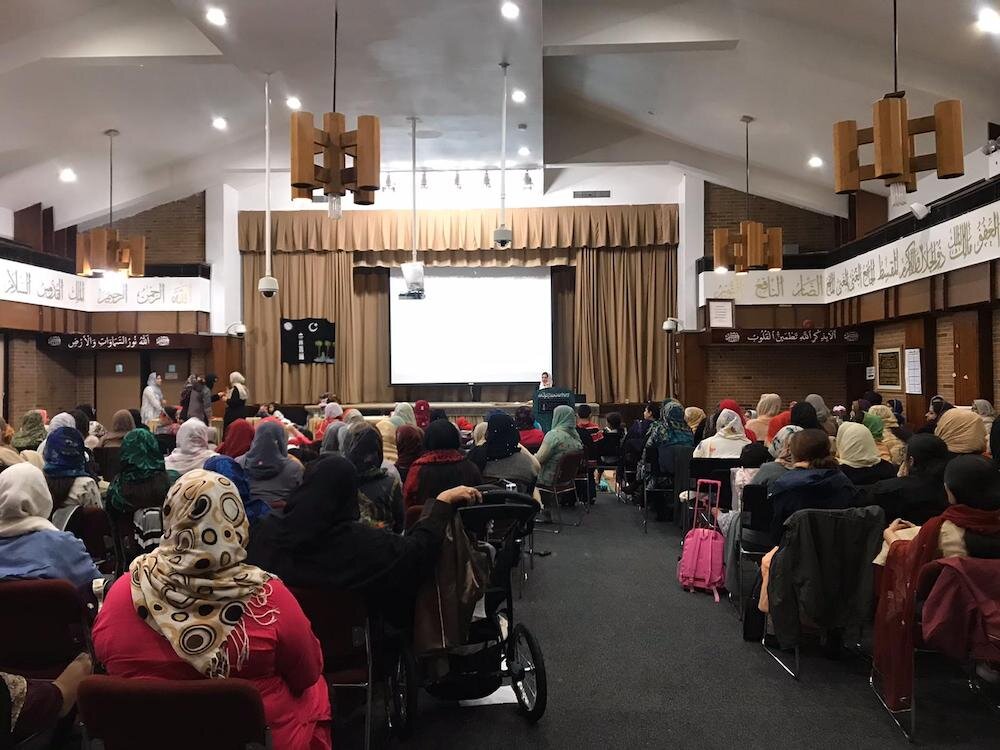
Amara’s mother followed a similar reasoning when she first pledged Amara as a waf-e-nau. It’s been 22 years since then. Amara is currently in her second year of studying medicine, with no inkling of what her future will look like.
“As of now, medical students are being sent to Guatemala because they are most needed there,” she says. “But when I met the Khalifa last year, he told me that he won’t send me there. He is going to send me somewhere else. Let’s see.”
She glances around the room at the 8-12-year-olds demonstrating their knowledge of everything from the rules of Islamic dining to poems espousing the spirituality of Islam. Her eyes are warm and aglow. Perhaps she sees herself in these children, all of them bound to Allah, their futures lingering in the air, suspended, uncertain.
